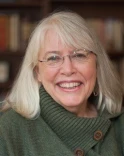Barbara Lane was only 3 years old, one of 11 sisters, when her mother picked up the infant in the family and walked out the door, never to return. Most of the girls ended up in foster care, separated from one another and even adopted by other families.
For more than four decades, the sisters searched for each other. The emotional story of their eventual reunion—and the details of what happened to each sister along the way—is documented in Broken Water, a book by University of Maryland Global Campus (UMGC) alumna Lane that has drawn national media attention.
The story of the sisters is both beautiful and upsetting. They found one another and remain close. But the years apart were not kind ones. Each of the girls was abused. Lane believes the book has received attention because of the powerful way it connects with victims of trauma, especially those brutalized by the foster care system.
Lane said Broken Water’s overall message is one of “hope and healing.”
People magazine has written about the self-published book, as has Britain’s Daily Mail newspaper. Broken Water was mentioned in Parade magazine and Lane wrote an article about the search for her sisters in Newsweek. Radio stations and podcasts in multiple countries also aired stories about the remarkable true story. Talk show host Whitney Reynolds, whose program is carried by PBS stations, taped a segment on Lane.
“The story of my sisters and me provides a unique look into the lives of a particular family, but I think the book resonates with others who survived trauma,” said Lane, B.S. ’95. “The number of individuals who have survived trauma in foster care is astounding. We were 11 girls, many of us ended up in the foster care system, and not one of us escaped physical or sexual abuse.”
Lane and one of her sisters were adopted together by an organized crime member with a trigger temper and his wife. The girls were forbidden from mentioning their missing siblings, and Lane still marvels that the sisters all managed to find one other after so long apart.
A few years after the sisters’ 1997 reunion, Lane’s siblings urged her to document their story in a book. Little did she know what she had taken on. The sisters had diverging memories—and even conflicting stories—of what happened to their parents. Some were willing to share their stories, others were reticent, revealing bits and pieces over a period of years. She had to move slowly and gently in reopening painful moments.
Yet, Lane said, a love of writing was honed during her studies at UMGC, and that enabled her to persevere with the project.
“UMGC is where I learned how to write to get to the point, how to do research, how to express what is in my heart,” said Lane who, prior to beginning the book, had a long career as a ministerial counselor focused on people who experienced trauma.
“I didn’t realize I was going to end up being a writer,” she said.
Lane was a busy mother looking for a way to advance her education when she enrolled at UMGC. She earned a bachelor’s degree focused on human development and social sciences, graduated magna cum laude and was invited to join national honor society Phi Kappa Phi, which recognizes academic excellence. She followed that with a graduate degree in family psychology through a distance-learning program with Norwich University in Vermont, where she had “a perfect mentor” thanks to a connection made through UMGC Professor of Psychology Diane Finley.
Lane subsequently became an ordained minister, blending spirituality into her counseling.
She has also been involved in protecting children’s wellbeing, including as a court-appointed special advocate (CASA) for youngsters in Montgomery County, Maryland. “The first case CASA assigned to me was a mother with 13 children,” Lane said. “That mother had every one of her children taken away. I spent nearly five years involved in that case.”
Lane has also made appearances as a speaker before foster care support groups. While acknowledging that the foster care system failed her family, she is quick to note that there are also “fabulous foster parents, top-notch people who have their heart in the right place.” She said the foster care system is incorporating more and better screening and training.
In addition to Broken Water, Lane has written What Your Inner Child Knows, a self-help manual for people who lived through trauma; she envisions turning it into a course. She is currently revising The Red Sun Umbrella, a children’s book she wrote several years ago with the help of her then 9-year-old grandson. And she is thinking about researching the childhoods of her mother and father for use in a book about the multigenerational effects of abuse.
Lane said one of the wonderful things about finding her sisters was the discovery of their similarities.
“The reconnection just thrilled my heart. I knew their smell and touch. I remembered the color of her eyes. I remember them rocking me and singing to me and protecting me when I was little,” she said. “I love my sisters so much to this day. I believe they are responsible for why I survived my childhood.”
Although the sisters are scattered across the country—Lane and her husband live in Virginia’s Shenandoah Valley—they come together as a group more than once a year and stay in close touch.
Lane noted that there was always a chance that the book would never materialize.
“We had a pact that if even one sister said ‘no’ to the project, the book wouldn’t be done,” Lane explained. “Each sister knew her story. But reading the book was the first time that they knew the stories of the other sisters in totality.
“Once the book was published, we all cried and dried each other’s tears.”
